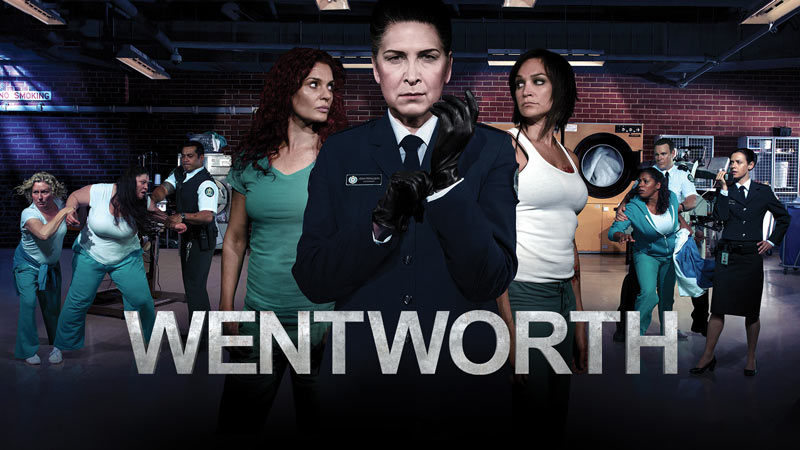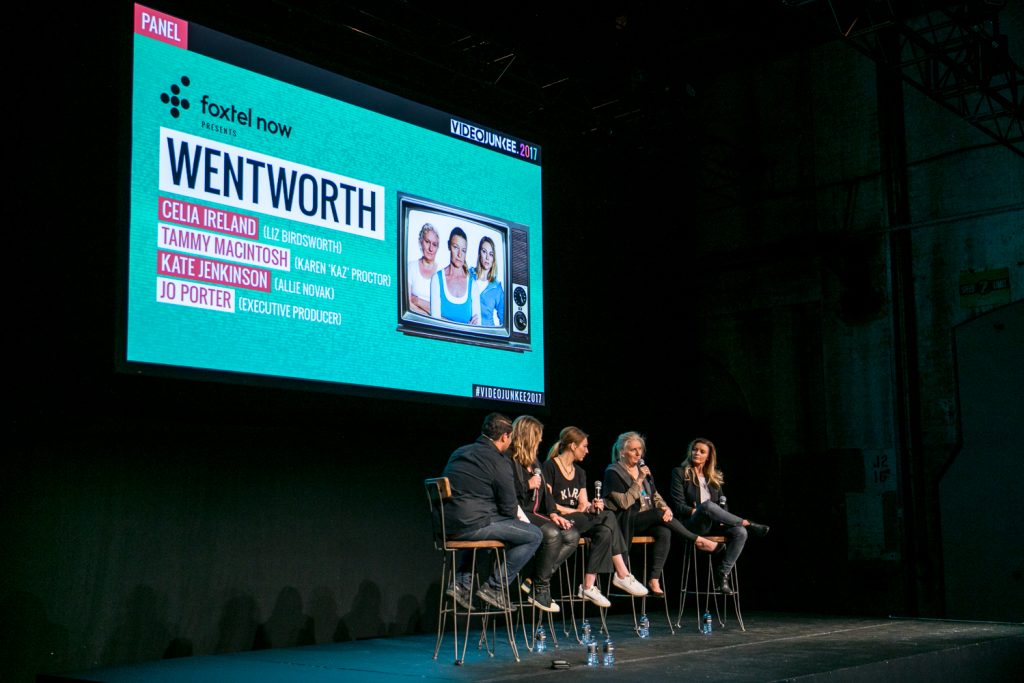How To Make A Cult TV Series, According To The Women Behind ‘Wentworth’

There’s been pressure on Wentworth since before it even hit screens. Not only because, in a world of sequels and reboots, everyone demanded that it live up to the legacy of its much-loved predecessor, Prisoner, but because it can be hard to find a unique voice when the conversation is dominated by behemoths like Orange Is The New Black.
But it’s been a runaway success, capturing the imaginations of an Australian audience for whom it hits close to home. It’s now broadcast in 140 countries around the world. There are also three existing foreign-language adaptations, with a possible fourth on the way.
We learned that little tidbit, along with a bunch of general wisdom on making a series that still holds up six seasons in, from executive producer Jo Porter and actors Kate Jenkinson, Tammy MacIntosh and Celia Ireland at Video Junkee on Saturday.
Here are some of their tips.
Stay True To The World You’ve Created – Even When It Hurts

Wentworth isn’t a show that tiptoes around its confronting subject matter, and that’s what makes it believable. Porter believes that if you’re going to go to the trouble of creating an alternate universe, you had better own the truth that comes with it.
“What drew us to [Wentworth] was…a world that most people have never been to, so the rules are behind a veil of criminality, but within that exists an ecosystem of power and individuals,” Porter says.
Given that, a huge, story-altering event like the season five death of character Bea Smith was never going to be a product of something as simple as actress Danielle Cormac’s resignation (it wasn’t). Rather, Porter says she and the show’s creative team swung the proverbial axe, acknowledging that Bea’s death felt right in the context of her story arc and in the universe they’d built around her.
“There was a heaviness about that choice and the decision, and I definitely felt it in the first edit that I saw,” she explains.
Approaching an event like that, Porter says she has to have faith that the world they’ve created will hold up. “There’s definitely a sense of anticipation…[but], as long as it sits in truth, that will bring the audience with us, and they’ll understand the trajectory of it.”
Jenkinson agrees, adding that it’s the show’s consistency and the universal nature of the themes it explores that keep people coming back. “It’s applicable to any country, anywhere, any time, and I think that’s why a format that was created in the ‘70s is still working and relevant today.”
Protect Your Product
When you know you’re on to something good, it can be tough to keep yourself from blabbing about it to anyone who’ll listen, but what Wentworth’s exceptionally loyal audience loves about the show is its ability to surprise them, even after 60 episodes. Porter puts that down to the fact that they haven’t suffered a single leak in the series’ history.
“You always want to try to preserve [the storyline] for [the audience’s] enjoyment…and, I have to say, that it speaks to the whole cast and crew that we’ve actually had no spoilers,” Porter says, adding that it comes down to the respect they all share for their fans.
But, outside of the fact that they’ve been able to preserve certain cliff-hangers, MacIntosh says it’s also important for them in maintaining the narrative’s integrity.
“The writers are very clever, and they’re very clever in the way they deliver information to us as actors,” MacIntosh says. “If I start to know too much of what’s happening, it might subconsciously affect how I act now.”
Look Out For Your People
From lynchings and frenzied stabbing attacks to psychological abuse, heavy subject matter is all part of the job for Wentworth’s longstanding cast and crew.
“[Wentworth] has a hugely fast, rapid narrative that keeps the audience on the edge of their seat, coupled with real, raw, truthful performances,” Ireland says. And it can take a toll on the actors tasked with bringing it to life,” say MacIntosh.
“You kind of have to tap into a source of emotion and keep yourself hovering there, which is a really interesting thing as an actor – you can’t just drop your bundle in between takes. You have to maintain whatever emotionality you’re bringing to the scene.”
But they’re unanimous in saying that none of them would have made it past the first week had they not been so well looked after.
“We’re so well supported on every single level of the production that it never feels tragic; I never feel that I’m unsafe, emotionally or physically, in any way,” Jenkinson says. “And we do manage to have an amazing amount of fun on set, which is kind of interesting, given how dark the show is.”